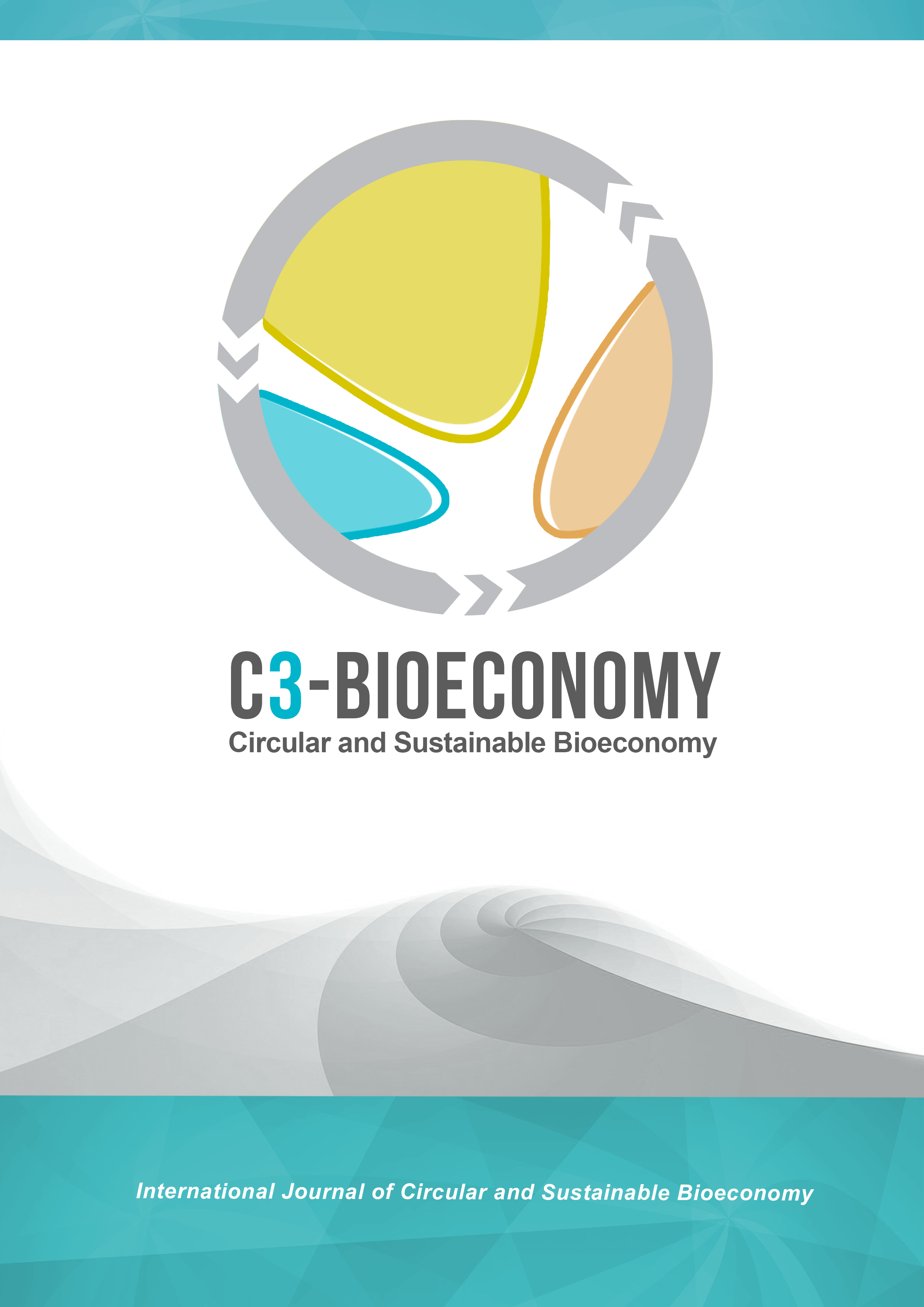Public Policies in Bioeconomy in Brazil: the strategy of Agropolo Campinas-Brasil, Agropolo Campinas-Brasil
Main Article Content
Abstract
Agropolo Campinas-Brasil was created in Campinas, Brazil as a collaborative platform among public institutions (Agronomic Institute of Campinas-IAC, State University of Campinas-UNICAMP, Institute of Food Technology-ITAL, the Campinas City Hall, and the TECHNO PARK. The main objective was to change how research organized and to promote technological innovations in the bioeconomy tropical. Brazil is a large producer and exporter of food, but still has difficulties to add value to its products. In this sense, with the support of the Research Foundation of the State of São Paulo - FAPESP, and following the example of Agropolis International, Montpellier, France, a study was carried out in strategic areas in agriculture, health, food, green chemistry, and bioenergy. This article presents some of the main results aimed at implementing a roadmap for the tropical bioeconomy in Brazil.
Downloads
Publication Facts
Reviewer profiles N/A
Author statements
Indexed in
-
—
- Academic society
- N/A
- Publisher
- Universidad de Córdoba
Article Details

This work is licensed under a Creative Commons Attribution-NonCommercial-NoDerivatives 4.0 International License.
Proposed policy for journals offering open access. Those authors who publish in this journal accept the following terms:
a) Authors will retain their copyrights, but guarantee the journal the right to the first publication of their work, which will be simultaneously subject to the Creative Commons Recognition License , which allows third parties to share the work provided that the author and initial publication in this journal is indicated.
b) Authors may subscribe other non-exclusive license agreements for the distribution of the work published (for example: place it in an institutional electronic archive, or publish it in a topical volume) provided that the initial publication in this journal is duly noted.
Authors are allowed and even encouraged to disseminate their work via the Internet (e.g., in institutional electronic files or on their website) before and during the submission process, as this can foster valuable exchanges and increase citations of the work published. (See The effect of open access).
References
AGEMCAMP. Indicadores da RMC. Disponible en: http://www.agemcamp.sp.gov.br/observatorio/indicadores.php (última consulta en 18 de junio de 2021)
BOUND, K. (2008). Brazil, The Natural knowledge economy, The Atlas of Ideas, Demos, London, SE1 2TU, UK, 159p., 2008.
CARBONELL, S.A.M., L.A.B. CORTEZ, L.F.C MADI, L.C. ANEFALOS, R. BALDASSIN JUNIOR, R.L.V. LEAL. (2021). Bioeconomy in Brazil: opportunities and guidelines for research and public policy for regional development. Biofuels, Bioproducts and Biorefining - Biofpr Journal, accepted for publication.
CARBONELL, S.A.M., L.A.B. CORTEZ, L.F.C MADI, L.C. ANEFALOS, R. BALDASSIN JUNIOR, R.L.V. LEAL. (2021). Bioeconomía Tropical, Roadmaps e Diretrizes para o Desenvolvimento da Bioeconomia no Brasil. ISBN 978-65-994280-0-5, 163p.
CORTEZ, L.A.B. (Coord.), (2010). Sugarcane Bioethanol: R&D for productivity and sustainability. ISBN 978-85-212-0530-2, Editora Edgard Blucher, 2010, 992p.
CORTEZ, L. (2019). Políticas Públicas y Bioeconomía en Brasil. Presentación en el IX Encuentro de la Red Innovagro – Bioeconomía Circular y Ecosistemas de Innovación, Córdoba, España, junio 2019.
EUROPEAN COMMISSION. (2021). Roadmap for moving to a competitive low-carbon economy in 2050, disponible en: https://ec.europa.eu/clima/sites/default/files/2050_roadmap_en.pdf (última consulta en 18 de junio de 2021)
GERMAN FEDERAL MINISTRY OF EDUCATION AND RESEARCH, (2021). National Research Strategy Bioeconomy, our route towards biobased economy, 2030, 56p. Disponible en: http://biotech2030.ru/wp-content/uploads/docs/int/bioeconomy_2030_germany.pdf (última consulta en 18 de junio de 2021)
Secretaria de Agricultura e Abastecimento do Estado de São Paulo – APTA/IAC. (2012). INSTITUTO AGRONÔMICO (IAC) – “Orgulho nacional em terras paulistas” Campinas: Instituto Agronômico, 58 p. (Documentos IAC, 107)
OECD. 2009). The Bioeconomy to 2030, designing a policy agenda, 321p., 2009.
PREFEITURA MUNICIPAL DE CAMPINAS. (2015). Perfil do agronegócio no município de Campinas, 2015.
PREFEITURA MUNICIPAL DE CAMPINAS. (2015). Planejamento Estratégico de Ciência, Tecnologia e Inovação de Campinas (PECTI) 2015-2025.
FINNISH GOVERNMENT. (2014). THE FINNISH BIOECONOMY STRATEGY: sustainable development from bioeconomy. 2014. 17p. Disponible en: https://biotalous.fi/wp-content/uploads/2014/08/The_Finnish_Bioeconomy_Strategy_110620141.pdf (última consulta en 18 de junio de 2021)
UK GOVERNMENT. (2021). Building a high value bioeconomy: opportunities from waste. 40p. disponible en: https://assets.publishing.service.gov.uk/government/uploads/system/uploads/attachment_data/file/408940/BIS-15-146_Bioeconomy_report_-_opportunities_from_waste.pdf (última consulta en 18 de junio de 2021)
US WHITE HOUSE. (2012). National Bioeconomy Blueprint. de Abril de 2012. disponible en: https://obamawhitehouse.archives.gov/sites/default/files/microsites/ostp/national_bioeconomy_blueprint_april_2012.pdf (última consulta en 18 de junio de 2021)


